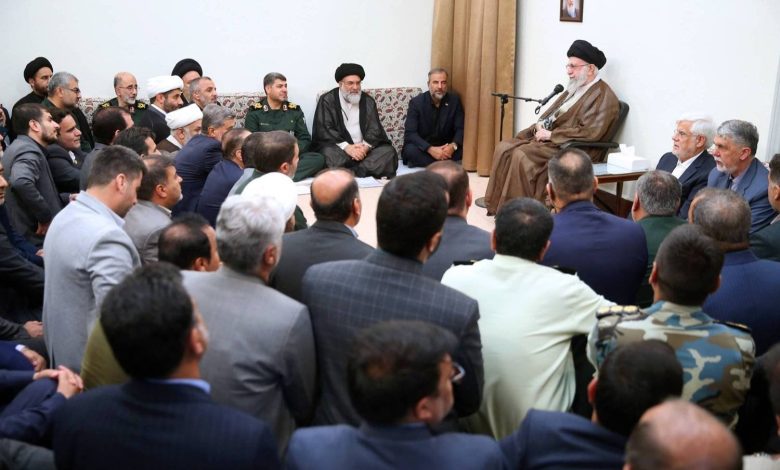International
Khamenei Defies ‘Psychological Warfare’ amid Military Tensions

Sudan Events – Agencies
Iranian Supreme Leader Ali Khamenei has refused to yield to what he described as military “psychological warfare”, implicitly referencing the United States’ deployment of a “deterrence” force to the region after Western powers warned of escalating tension, particularly regarding potential threats to Israel.
Khamenei said the enemy’s objective in psychological warfare, particularly in the military arena, is to instill fear and force a retreat.
“As the Quran states, a non-tactical retreat in any domain—be it military, political, or economic—will incur divine wrath,” he added.
Khamenei’s comments came after Tehran, on Tuesday, described Western calls to avoid retaliation against Israel, after the killing of Hamas leader Ismail Haniyeh, as “”illogical and excessive”.
Iran has threatened a harsh response to Haniyeh’s killing, which took place during his visit to Tehran late last month, accusing Israel of responsibility. Israel has neither confirmed nor denied involvement.
Meanwhile, the US Navy has deployed warships and submarines in the Middle East to bolster Israeli defenses.
Khamenei’s official website quoted him as saying in a meeting with a group of Iranian figures that feelings of weakness, isolation, and submission to the enemy’s demand are an
“exaggeration” of the enemy’s capabilities
He pointed out that governments, whether of large or small nations, which currently “capitulate to the demands of the arrogant powers, could avoid submission if they relied on their people and capabilities, and recognized the enemy’s true power without exaggeration.”
Meanwhile, US Secretary of Defense, Lloyd Austin has ordered a guided missile submarine to the Middle East and is telling the USS Abraham Lincoln aircraft carrier strike group to sail more quickly to the area.
American officials said that these public announcements aim to convey a message to Iran that US military capabilities can be used against any Iranian attack.
US President Joe Biden expected that Iran would refrain from launching a retaliatory strike against Israel if a truce was reached in Gaza.
In response to a question from reporters about whether Tehran would abandon targeting Israel if an agreement could be reached, Biden said on Tuesday evening: “This is what I expect.”
Earlier on Tuesday, Reuters quoted three senior Iranian officials as saying that the only way that could postpone Iran’s direct response to Israel is to reach a ceasefire agreement in the Gaza Strip in the hoped-for talks this week.
Two sources said that Iran is considering sending a representative to the ceasefire talks, for what would be the first time since the start of the war.
The representative will not attend the meetings directly, but will participate in behind-the-scenes talks to “maintain a diplomatic channel of communication” with the United States while the negotiation process continues.
But hours after publishing its report, Reuters quoted Iran’s mission to the United Nations in New York as saying that Tehran will not have a representative present on the sidelines of the ceasefire talks.
In an implicit denial, the government agency ISNA, citing an unnamed “informed source,” said that “this claim from the British agency cannot be confirmed.”
On the other hand, the Israeli Broadcasting Corporation reported, citing a senior Israeli source, on Tuesday evening, that Tel Aviv will not participate in the round of negotiations scheduled to be held in Qatar on Thursday regarding an exchange deal if the mediators agree that Iran sends representatives to these negotiations.
Western diplomatic pressure has been escalating since then in an attempt to spare the Middle East from further escalation.



